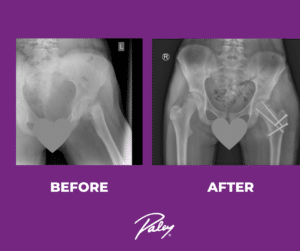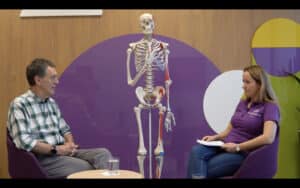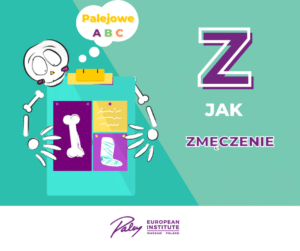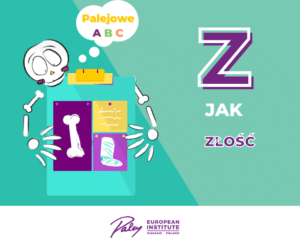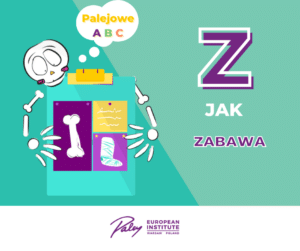The essence of patience is an active process. After all, it requires regulating one’s emotions, looking at what happens to us differently than before, and adapting one’s actions to what is happening. Without these elements, it will be difficult for us to be patient, and automatic behavior, preserved over the years, will come to the fore. And this way, standing in a long traffic jam, we will join the cacophony of horns again, shout at the child (and we were supposed to be calm!), or we will change the queue in the store, hoping that the next one will move faster.
Unfortunately, today’s fast-paced world does not encourage patience. You could say that it effectively makes it difficult. We have already got used to the fact that virtually any information can be obtained in a few moments and the results do not have to wait long. In a world focused on quick results, it is difficult to cultivate patience. People generally expect needs to be met quickly, questions to be answered quickly, and to see the results of their efforts quickly.
The quick results are undoubtedly pleasant. Our brain melts in ecstasy because the effect came so quickly and easily. The tension in the body comes off and relief comes. This can trap us in the expectation that everything should come just as quickly. Patience, however, requires us to postpone quick effects, learn to wait, deal with unpleasant emotions, stress, and make an effort. Sometimes you have to wait a long time for the effects.
We may encounter discouragement, frustration, and anxiety on our way to achieving our long-term goals. A thousand thoughts begin to flow through my head: “what if it fails”, “if it will always be so hard”, “if it’s all for nothing?” Tension builds up in the body, discomfort appears, the heart beats faster, and the uncertainty about the effects of what the next day will bring increases. There may be bitterness, anger, and fear that the effects are not coming as quickly as we would expect.
However, you can effectively train patience. It’s worth it because it brings a number of benefits. First of all, patient people enjoy better mental health – they are able to regulate their emotional arousal more effectively and deal with difficult, stressful, and unpredictable events. Such people also declare that they often feel gratitude, bond with people (including strangers), and are full of hope in the face of challenges.
Additionally, they show greater empathy, which makes it easier for them to build good relationships with others and establish lasting relationships. Two weeks of patience training already bring remarkable results. It is worth trying even at home to see what the effects will be.
3 (not easy) suggestions:
1. Take a different perspective on the situation you are in – it seems extremely difficult at first. How else do you look at what is happening to you ? It’s bad, period. It turns out, however, that impatience is not only an automatic response that we have no influence on. It also includes thoughts and beliefs. And we can work on them consciously. The next time you feel impatient, try to catch the thought that popped into your head. Maybe you can reformulate it to be more constructive? And if not, just catching such a burning thought allows you to stop and focus on the emotions it evoked. Do you feel angry and frustrated? Try to react differently than before. Instead of yelling at your child or partner, do a quick jog around the house. Instead of swearing at traffic jams in the city center, turn on an audiobook and redirect your attention to listening to the book. These are, of course, only examples that do not necessarily apply to you. Try to find situations that are closer to you.
2. Gratitude – Write down or think about three things for which you are grateful each evening. This task may seem difficult at first, but after a few days, you will find that gratitude comes more and more naturally to you. Being grateful makes it easier to see achievements and small successes that we don’t pay attention to on a daily basis. It also brings relief in times of difficult times in life.
3. Breathing and mindfulness – paying attention to our breathing allows us to calm down, focus on our body and thoughts. Thanks to such a moment of conscious breathing, we can act more effectively and make informed decisions, not on impulse. It is worth paying attention to whether our breathing is shallow or deep, slow or fast. We can practice mindfulness not only by focusing on breathing but also on every daily activity – eating, walking, or even brushing our teeth.
What about kids?
It would seem that children are by nature impatient. However, it depends on the specific child and the situation in which they find themselves. Perhaps children are more impatient than adults in the long queue at the cash register or during the journey they ask for the hundredth time? But how patient and focused they can be while learning new skills or having fun: crawling, walking, and building blocks.
We often increase the impatient behavior of children. How? For example, once again responding to their request to play “right away” by saying “later”, or “do not disturb”. After all, they usually try to ask us a few times before they get angry and start crying, screaming, or squeaking boredom.
However, if we want to support children in learning patience, let us notice the times when our children are already patient. Additionally, we can create a family ritual with the child, e.g. reading books before going to bed. Such repetitive activities allow the child to anticipate events, provide a sense of security and teach that it is worth waiting because then something nice will happen. However, while waiting for something distant (birthday, holidays, departure), create a calendar in which the child will tick off another day every day. Practice mindfulness and train the ability to relax is also a great idea.

